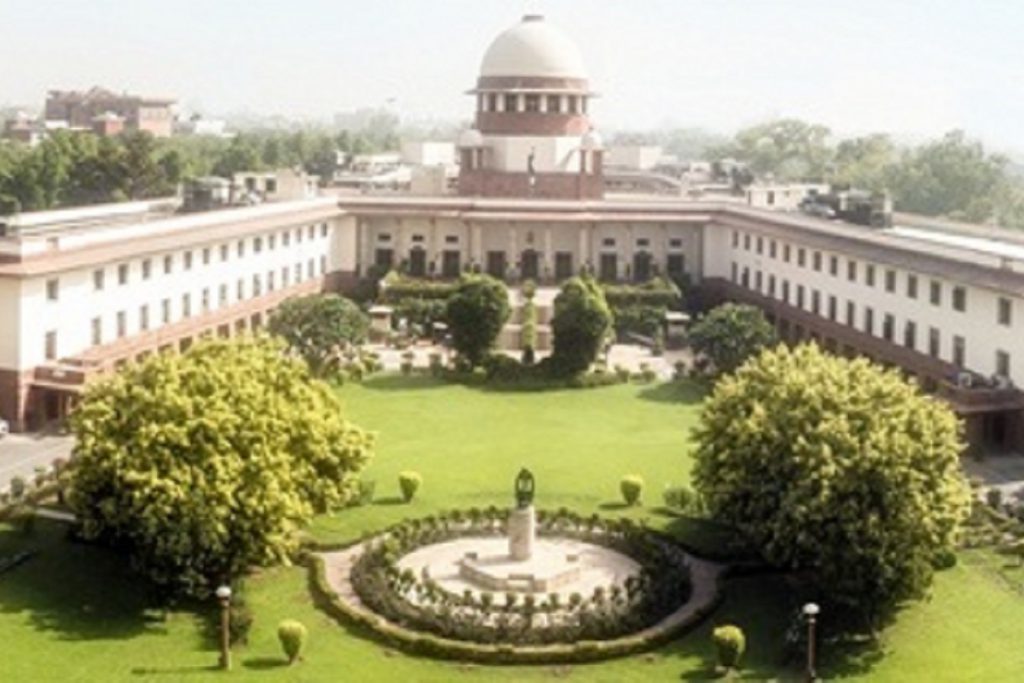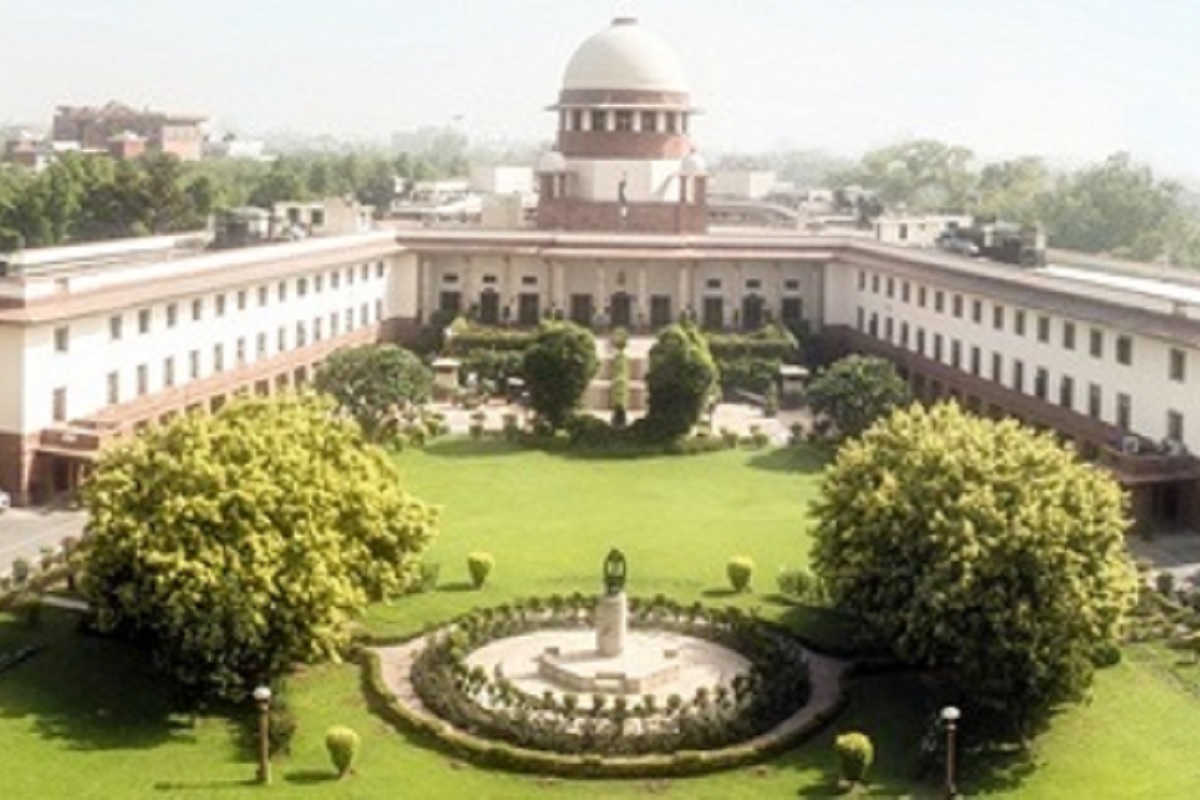Institutional Idiosyncrasies at the fore in the Courtroom: A Case Study

[responsivevoice_button voice=”US English Female” buttontext=”Read out this Theel for me”]
As students of various disciplines within the stretches of social science, we locate the rule of law in the strict adherence to the separation of powers. The complex interaction between the three branches of the government-legislature, executive and the judiciary- is what stands as a test of time for codified principles of democracy. The judiciary acts as the watchdog and the ultimate force that ensures the practice of the rule of law. Hence, the way the court functions taking into consideration a host of intricacies and the manner in which case laws weigh in has its manifestations on the direction in which society thinks and mobilizes and which inturn shapes the role of judiciary in a polity.
Setting the context
The case at hand here pertains to the extent of power enjoyed by the executive in the monetary oversight of the financial autonomy enjoyed by a variety of organizations under the ambit of the Foreign Contribution (Regulation) Act, 2010. These organisations are the ones which have a considerable influence on social and political life of the country and are involved in a wide array of democratic reforms which are both institutional and radical in nature. The case traces its origin to the decision of the Delhi High Court which had dismissed the petition of the appellant who had previously sought the interference of the Court in halting the unbridled power which is given to the Government to implement control over these organizations. The appellant, Indian Social Action Forum moved the Apex Court challenging certain provisions of the Act and its incidental rules as being unconstitutional on the same grounds of unreasonable and arbitrary. Article 14, 19 (1) (a), 19 (1) (c), 21 of the Constitution and Section 3 as well as 5 of the Act were delineated upon throughout the case.
Understanding the case
An organization named Indian Social Action Forum, which is a registered forum involved in defending ethos of democracy and combating ills like communalism and exploitative outcomes of globalization that the current gamut of democracy is fraught with, challenged certain provisions of the Act on the lines of they being manifestly arbitrary and ambiguous. The main issue which arose in this case was whether section 5 (1), (4) and its subsequent rules 3(i), 3(iv) and 3 (vi) of the act in question are in violation of the fundamental rights. Moreover, is it constitutionally tenable for the executive to proceed with curtailing the foreign funds to an organization which the state believes to be of ‘political nature.’ The other pertinent issue which was raised before the Court was whether an organization perhaps is entitled to invoke the fundamental rights under Part three of the Constitution. A concept repeatedly debated in courtrooms about the rights of a corporate personality to sue for rights, again resurfaced in this case.
Arguments against the Act in question
The argument advanced by the appellant about the operation of the Act is that under section 5 (1) no guidelines for the proper exercise of power by the government have been made which entails an organization being clipped off from financial resources. The broad landscape created by Section 5 leads to arbitrary use of power by the state which results in organizations that are genuinely invested in education and activism to be unnecessarily tainted as political thereby having stalled their funds from foreign entities. This discourse envisaged by this specific provision of the Act violates Article 19 (1) and © of the Constitution as it hits freedom of speech, expression and independence to mobilize as well as form association, to the hilt. Further there is no authority or body or machinery in place established by the executive which can adjudicate upon the plea of organizations deprived of finances by the Act.
The framework of the Act is such that Section 3 prohibits acceptance of foreign contribution by entities like candidates for election, journalist, judges, Government servant working in an establishment owned and controlled by State, member of any legislature, political party and organization of a political nature as may be specified under Sub-section 1 of Section 5 by the Central Government. Section 5 empowers the Government to specify an organization of a political nature not being a political party in tune with Section 3 (1) (f) which states that the ideology propagated by the organization or the association it undertakes with any political party plays a factor in the Government deciding whether the organization comes within the realm of Section 3. The pertinent threshold of the case is based on Rule 3 of the Foreign Contribution (Regulation) Rules, 2011 which expound guidelines for declaration of an organization to be of political nature though remaining not a political party. The scope of the Rule covers organizations working for social welfare, social advocacy, endeavoring to create space in the political discourse. These include trade unions, student unions, worker unions, several mass organizations whose memorandum of associations contain avowed political objectives which in reality do not have a direct connection with mainstream electoral politics. The argument advanced by the appellant was that such organizations are barred from keeping foreign contributions. As the procedure laid down under Section 5 proceeds upon a written order and an opportunity to submit a representation by the organization notified under the Act, it is the rationale of the Government operating around the blurred lines of the term activity, ideology and programme which forms the basis of the dispute. Rule 3 pursuant to the consonance of the provisions offer no clarity on words like political objectives, activities, interests and which ideology is considered to be anti-democratic. The phrase ‘avowed political objectives’ have been given unjustifiably wide amplitude in meaning within the Act.
The appellant emphasized that Rule 3 (i), 3 (iv) and 3 (vi) which expound about organizations having avowed political objectives in its Memorandum of Associations or by laws, mass organizations like student wings and any organization which routinely engages in methods of common political action respectively violate fundamental rights enshrined in Article 14, 19 (1) & © and Article 21 in unison. Hence, the petition sought the Act to be declared as unconstitutional on grounds of unreasonableness and manifest arbitrariness. It was argued that the operation of section 3, 5 and its subsequent rules in the Act is in contravention with the three fundamental rights which delves into equality before law, protecting freedom of speech and expression and guaranteeing paramountcy of liberty over arbitrary state control. It also stifles the financial autonomy of these organizations and disproportionately impacts entities which work for social welfare. It is tantamount to operating on unaccounted for whim and caprice which is detrimental to transparency and equality.
The legislative intent of the Act screams out that the sovereignty of a democratic polity rests on safeguarding economic independence of its institutions. The Court relied on the finding that there is a legislative necessity for “insulating sensitive areas of national life like journalism, judiciary and broad realm of politics from extraneous and doctored foreign influence through economic funding which is why Foreign Exchange Regulation Act, 1973 is crucial to clamp down on subversive activities”. Stemming from economic association is the transition to control over institutions on several fronts which degrade the values of a sovereign republic country.
A questionable defense
While the respondent argued on the lines of twin purposes served by the Act which is to regulate utilization of foreign funds by organizations and impinging into actions of the same organizations attributable to their source of funding. To begin with, the respondents challenged the locus standi of the appellants by trying to establish that organizations are not entitled to invoke fundamental rights by relying on several case laws. Then the argument stretched again upon two essential prerequisites to hold an Act as unconstitutional which is firstly legislative competence and secondly violation of fundamental rights. The present case does not warrant the two essentials that need to be fulfilled. The mere element of misuse cannot be the sole ground to declare an Act to be unconstitutional. The respondent’s side further supplemented their argument by citing a Doctrine in Administrative Law which states that subordinate legislation if being ultra vires of the main Act invites the wrath of constitutionality not on susceptibility to abuse of power. The respondents based their arguments that the right to receive foreign contributions is not protected under Article 19. The present Act in question with its safeguards against possible use of powers are in furtherance of the object and purpose of the legislation. They stressed upon adopting the principle of “reading down” into the impugned Rule 3.
The respondents relied on what the High Court had held that ideology propagated by an organization in nexus with activities of political nature though expansive but cannot be termed as uncertain or vague. Especially in the backdrop of sufficient guidance and specific grounds embedded within the Act. Foreign contributions making their way through voluntary organizations as named in Rule 3 potentially disrupting the values of a political society. This forms the whole logic behind Section 3 (1) (f) of the Act which pertains to regulating the financial attribute of the organization.
Judgment
The Apex Court held that only those organizations which are not indulged in active politics as well as party politics do not fall within the purview of Rule 3 (vi) which implores about the means adopted by the organization which exemplifies the nature of work done by it.
The palpable vagueness arising out of the rules though remain unaddressed in a substantive manner. However the Court clarified that keeping a tab on the foreign funds with credible material to raise enough suspicion by political parties cannot escape the rigor of the Act mandating the Central Government to tread upon the rules and procedure as per the Act resulting in depriving such an organization or entity of the foreign contributions. It even noted that an organization which habitually employs democratic means of dissent and methods of political action like protests, call for ‘bandh’ to advance public causes fall within the purview of advocacy for a purpose and not an entity of a political nature. The court went ahead with the purposive construction of the Act hence precluding from adjudging upon its constitutionality.
The judgment can be perceived as a sublime one for it does not decide on the constitutionality of the Act per se but is instrumental in whittling down the powers of the executive. It rather shields the provision under attack as being pervasively unconstitutional by construing them in light of rationality. It is an enabling decision which lays down guidelines for the state to function in sync with the true mandate of the law.
Understanding the judgement
This case carries extreme value in terms of the patterns of mobilization in the society. It is not by the dictates that a particular organization seeks to operate itself. The relevance of the decision remains that it does not lay down any uniform threshold or filter as to what qualifies as political unlike the Act which attempts to define attributes of political imbuing within organizational patterns in a clandestine broad manner.
The case does manage to inch closer towards laying down the basis on which democratic activities ought to be distinguished from truly subversive activities. This distinction is deeply crucial to furnish the concrete tendencies on which the Central Government chooses to act upon. It also impacts the spectrum of political environment in which mobilization by way of organizations and the kind of activities it undertakes is considered an indicator of participative democracy. The importance of giving adequate and rational reasons to without having the grounds tested in a judicial inquiry is a strong element in assessing the reasonableness of the restrictions. Such a finding though objectively talks about autonomy of an individual to effectively engage in social change yet has a broader ramification on all those facets that enable such a mobilization to take place within a democratic society.
Hence the applicability of the Act would perhaps result in the way governments have perceived the means and methods by several organizations to achieve socio-political objectives, undergoing a significant change. Hence, the case law has filtered the discourse of power of government over social and political institutions. The sound finding of delinking social work done by organizations from avowed political affiliations, in the given case confers greater autonomy and freedom to institutions which seek to revitalize the society in the confines of their own ideology.
Crucial takeaways
Litigating sovereignty and autonomy in a wider and liberal space has been made morally and legally to a reasonable extent easier owing to the precedent set forth by this decision. While it has been made abundantly clear by the decision of the Court in the present case which has woven the thread that mobilization organizationally or even ideologically cannot be by the dictates of State seeking to control financial prowess of an institution or body but by exercising choice available in a healthy democratic political society. The decision does fall short on the cardinal rule of assessing the efficacy of a legislation on the anvil of constitutionality when the restrictions by the state over the subject matter of the legislation is in excess and not proportionate to the objective sought to be achieved by such restrictions. The degree of choice of an organization and whether its activities comprise political components or not does suffer a chilling paralysis even if the court protects them from being caught in the fire of political wedges. It has been made clear by the Court that mere apprehension of abuse of power is not enough to declare a piece of legislation out rightly unconstitutional.
Featured Image Credits: main.sci.gov.in








